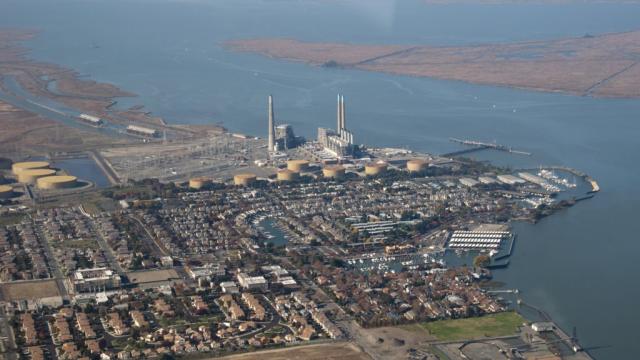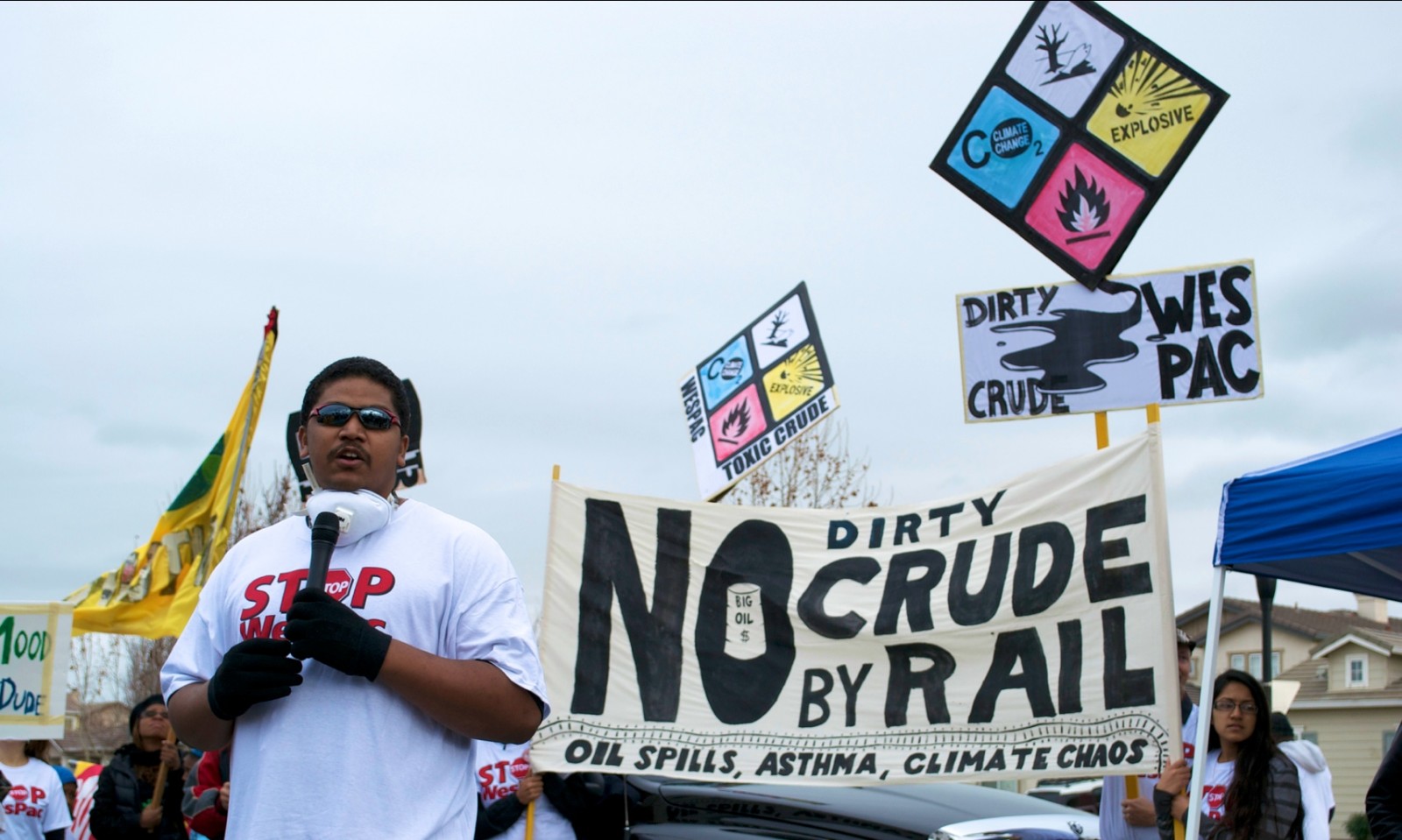
Pittsburg, Calif., residents hit the streets Saturday afternoon to protest the WesPac-Pittsburg Energy Infrastructure project being planned in the city as part of a refinery corridor through to the Bay Area. People Against WesPac and Pittsburg Ethics Council organized the residents at Mariner Park and marched in an historic first protest ever to Pittsburg City Hall.
Speakers sent the message that WesPac's plans to store highly volatile crude oil carried to Pittsburg by oil trains, ships, and/or extended pipeline from the Bakken fields of North Dakota were unacceptable and not necessary given advances and reduction in prices on clean energies. Critics of the project say there is a strong likelihood that tar sands from Alberta, Canada will also be part of the mix.
“This is a real David and Goliath fight,” said Rev. Greg Osorio, an organizer of Saturday’s march. “We need to be righteously angry.”
Christine Cordero, who grew up in Pittsburg, said, “I’ve got a lot of Pittsburg pride. I believe in protecting Pittsburg’s health, our children, our community, our families. We can’t let this project go forward. And what could happen in Pittsburg will affect the whole planet.”
The tanks looming over Mariner Park, schools, churches and hundreds of homes, are built in a liquefaction zone and two fault lines run through the area. Residents of Pittsburg’s most impacted neighborhoods are extremely nervous about their future safety.
“If I had known this was coming in, I would never had bought a home here,” said one longtime resident. “That the City is thinking about exposing me, my kids and my neighbors to these kinds of dangers is just unbelievable.”
The WesPac mega-terminal would bring in 10 million gallons of crude oil per day, causing a huge increase in emissions-heavy marine and rail traffic through Pittsburg, which already suffers extremely high rates of asthma and cancer due to industrial pollution.
One hundred tanker cars a day would pass through the city carrying crude oil destined for processing at local Bay Area refineries.
On January 2, the Pipeline and Hazardous Materials Safety Administration issued a safety alert about North Dakota crude. “Recent derailments and resulting fires,” it stated, “indicate that the type of crude oil being transported from the Bakken region may be more flammable than traditional heavy crude oil.”
There have been five major derailments and explosion of oil trains in the past six months alone, starting with a July 6 derailment disaster in Lac Mégantic, Quebec, that killed 47 people and destroyed the center of town. December 30 saw Casselton, North Dakota, barely “dodge a bullet,” in the words of its mayor, when an oil train exploded outside its borders.
Another fiery derailment just occurred last Tuesday in New Brunswick, Canada.
“We want to make people aware of what's coming to Pittsburg and how it will change life in our city forever,” said march organizer Lyana Monterrey.
“Our air quality will go south, our property values will plummet. If there’s an accident it could wipe out whole neighborhoods. If they spill it, our drinking water could be contaminated, and Suisun Bay all the way to San Francisco Bay and the Golden Gate could be polluted. We must stop WesPac now.”
3 WAYS TO SHOW YOUR SUPPORT
- Log in to post comments
















